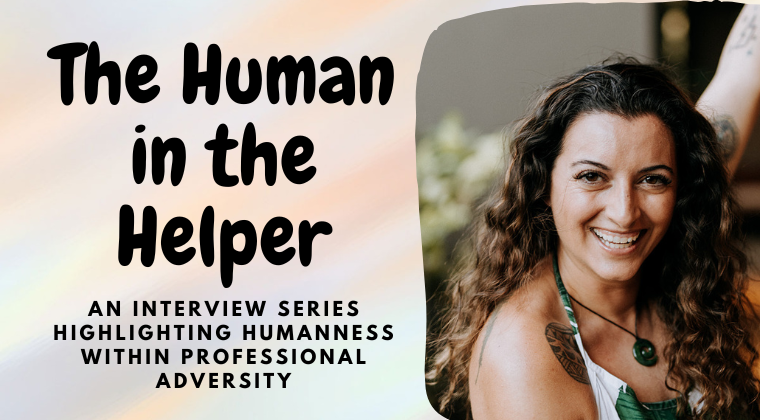Rose is no stranger to grief. She’s experienced several losses in her lifetime and even specializes in death as a counselor. Helping others navigate loss fuels her professional purpose, and yet she recognizes it’s a whole different experience to go through a significant loss yourself. “My daughter Layla was killed on her skateboard in the crosswalk.” This tragedy catapulted Rose into a shock response. “Everything comes to a halt, until you come out of it or ask for help.”
Rose began her quest for receiving help by reaching out to other therapists. “I knew I needed to process what happened.” She reflected on how others had problematic, and oftentimes hurtful responses to grief. Messages of grief being messy and an urge to get through it as fast as possible. An alarming message of hurry up and get over it. Rose understands grief differently. “Pushing grief down or attempting to get over it leads to it expressing in other ways, most often as flare ups.” She spoke to how buying something at the grocery store can leave a person in tears when they realize their loved one enjoyed that food. Or seeing someone spiral out when hearing food ordered at a restaurant in the exact same way as the person who’s died.
Rose recognizes that her grief is hers to process in ways that feel right to her. “I couldn’t find a therapist who wanted to help me with this. Several of them said it was too heavy.” So she pivoted into doing her own work individually, and with the help of a close friend willing to be her witness. “Find yourself a friend who can hear it. They don’t need to understand your experience or give advice, they just have to acknowledge they received it.” For Rose, this meant sharing what was coming up for her in text messages to her friend to prevent a flare up. It helped her stay grounded in the most difficult moments after Layla’s death.
Another piece of Rose’s healing process was giving herself a break from her grief. “I told myself that I was going to set it aside to work from 10-2 every day. Then I’d fall apart at 215.” This allowed Rose the opportunity to rest her brain, embrace meaning with her clients, and take a break from the grief of losing Layla. It gave her a sense of power and control in a powerless situation. Rose encourages others to find a counselor who doesn’t take on their symptoms as the client. She explained how it allows the professional to hold space for the work without taking on the emotions associated with the loss. “It’s mine to handle,” she shared, “I’ve got to find hope in the hurt.”
Rose also emphasized how she wants to think of Layla and talk about her every day. “I want to live in the love of her, not the loss. Just because she’s gone, doesn’t mean our love is gone.” Rose embodies this by seeing different perspectives of loss with tons of compassion. “Things happen to everyone involved. I just had to change my glasses to see things from their perspective.” Rose shared how the person who hit Layla in the crosswalk was a peer at school. “I don’t blame him, I could see that it was an accident. Layla wouldn’t have wanted him to stop his life because this happened.” Rose recounts how she took this young man’s hand and walked with him into the crosswalk, so he could truly understand how he couldn’t have seen Layla crossing that day. It’s the gift she gave him in a situation that was awful for so many. “A whole school was affected,” Rose reflected.
Now Rose is even more determined to help others with their grief. She wants clients and community members to feel empowered to take their time and try things until they find what’s right for them. She named that not everyone is going to go through the five stages of grief, and not in any particular order if they do. Rose wants to normalize the grief journey and feels called to create support since her own journey of seeking support had been so challenging. She’s channeling her experience into her client work, wanting others to feel free of the clutches of grief. “I want to help others find hope in the hurt. Layla’s love fuels everything I do.”
Things happen to us as humans, even as we support our clients as professional helpers. Do you have a story you want to share the mental health community? Email us at croswaitecounselingpllc@gmail.com to learn more about the Human in the Helper Series!




